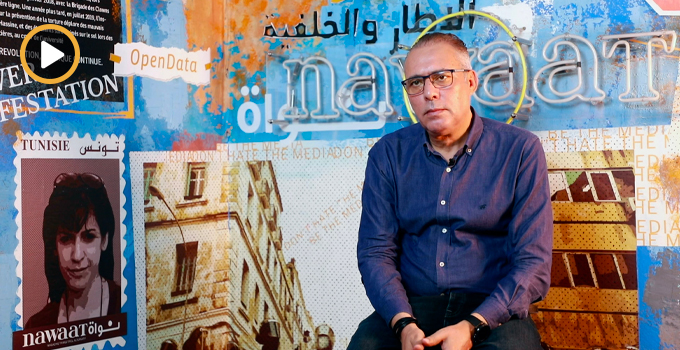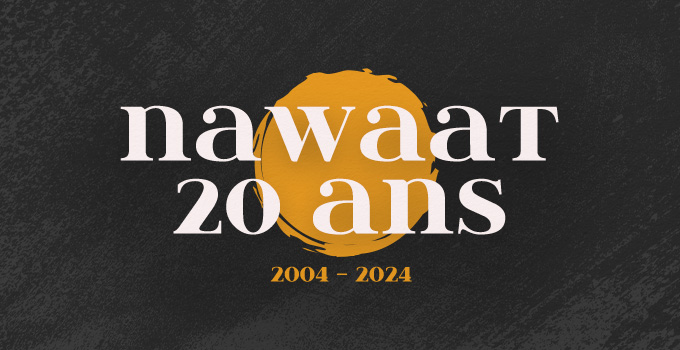November 2, 2008
The Fifth Congress: Setting the Stage
The significance of the 5th Congress (30 July-2 August 2008) of Tunisia’s ruling Constitutional Democratic Rally (RCD) lies not in Bin Ali’s nomination for the October 2009 presidential elections, but rather in the set of challenges that could render his fifth and supposedly ‘last’ term a time of transition to a more open political system in 2014. The Congress, held under the slogan “Al-Tahaddi” or “Le Défi” (The Challenge), was seen as an extremely important event in the country. The Congress’s key deliberations and decisions fixed the country’s political agenda for Bin Ali’s fifth term and beyond: building a self-reliant, peaceful and tolerant Tunisia; deepening pluralization within the RCD; expanding gender inclusiveness; advancing further the goals of social solidarity, equal opportunity and distribution of developmental goods; accommodating youth through a national process of dialogue; investing more resources in employment; and committing Tunisia to the ideals of peaceful co-existence, anti-terrorism, and dialogue of civilizations. However, the congress’s key message? Only Bin Ali can deliver these ‘goods’.
Bin Ali himself looked in charge and younger than his septuagenarian age. In front of RCD stalwarts and thousands of rank-and file, foreign diplomats, and representatives of ninety two international political parties, that included the ruling parties of France and China, and his guest of honor, the embattled Palestinian President Mahmoud Abbas, Bin Ali set out his main goals. These included, apart from announcing his candidacy, the following promises: a commitment to a thirty per cent quota for women in both houses of parliament and the RCD; increase in the membership of his party’s central committee from 250 to 343; endorsement of the year-long national dialogue with the country’s youth; and the election of a vice-president for the ruling party.
Bin Ali’s nomination was virtually uncontested within the party. The RCD, which remains a mass political party, with a two-million membership (one-fifth of the country’s adult population, close to 90% of the voting population), has since 2006 been running the campaign “Bin Ali for Tomorrow’s Tunisia” and “Bin Ali 2009”. The major unions affiliated with the state – the General Tunisian Workers Union, The National Women’s Association, the National Farmers and Fishermen Association, etc. – had also come out early in support of Bin Ali. This well-orchestrated campaign was akin to a bay’ah (a tradition of popular endorsement and vow of loyalty that has tribal roots) that has become disturbingly common in Arab republican systems.
Bin Ali’s supporters praise his performance: poverty alleviation through the National Solidarity Fund, stability and business confidence which draw billions in foreign direct investment, thriving tourism, increased trade with neighboring Libya and Algeria, beneficial Association with the EU, moderation in international relations, modern infrastructure, and high investment in human resources – in short, a ‘country that works’.
Mahmoud Abbas praised Tunisia’s school of “waqi’iyyah” (political realism) and emphasized that it was desperately needed in the rest of the Arab World. Colonel Gaddafi, on a state visit to Tunisia a week later to open a Libyan-funded housing complex, also endorsed Bin Ali’s candidacy stating that “Libyans … feel comfortable with his leadership.” Gaddafi’s sentiments echo those of EU and US leaders for whom Bin Ali is reliable in his moderate and peaceful foreign policy as well as commitment to the ‘War on Terror’. Asian, Third World, and European dignitaries, speaking in the Congress on behalf of their political parties, noted the success story of Bin Ali’s Tunisia in terms of continuous reform of the RCD, sustainable development, inclusiveness of women, steady political transformation, and commitment to both the new Union for the Mediterranean and the Arab Maghreb Union.
Bin Ali’s opponents detract from his performance, citing domination of the political landscape by the RCD, abuse of human rights by the security apparatus and police, ongoing media censorship, curbs on associational life and civil society organizations, and the exclusion of a number of political parties—both secular and Islamist—from parliamentary life. His critics also doubt his commitment to democratic transition.
The RCD has not helped the situation in this regard. The law passed in parliament by the RCD majority on the 26th of July validates the opposition’s suspicions. That law regulates the right to presidential candidacy by limiting it only to the leaders of political parties, and by further stipulating that presidential contestants must have served a minimum of five years in the position of party secretary-general. Thus the law blocks independent candidates as well as leaders or members of non-legalized political parties or other civic bodies.
Nejib Chebbi, the former leader of the Progressive Democratic Party for less than five years, accused the RCD of effectively blocking his candidacy for the 2009 elections. Chebbi is prominent but he would not be able to threaten Bin Ali in the presidential election. Bin Ali will have no serious contenders in the 2009 presidential contest. The 1999 and 2004 presidential elections, in which Bin Ali won respectively with 99.4% and 94.5% of the vote, were not contests amongst equals, nor will the 2009 election be very different.
Towards a New Tunisian National Pact for 2014 and Beyond
Both the RCD and the opposition face a major challenge that has more to do with what happens in Bin Ali’s fifth term and how the two sides can collaborate for a new national pact and subsequent democratic transition beyond 2014, than with who wins the 2009 elections. While opposition figures are correct to rail against the unfairness of the contest and the excesses of the RCD administration, Bin Ali’s fifth term can also be seen as a democratic opportunity for a transition from the RCD-dominated political system. The focus of the opposition should be directed toward what needs to be done to create a democratic opportunity in 2014. One test for Bin Ali’s intentions on this score will be whether he directs his party to create the unrealistic vote percentages of the past or whether he will win by figures in the eighty or seventy per cent range – regardless of who stands against him. This would boost his credibility and would help make him a more effective moderator if and when he steers Tunisia in his last term towards a serious negotiation of a democratic transition, based on a national pact, that brings the RCD and the opposition together.
On the eve of Bin Ali’s fifth term, a number of policy recommendations can be suggested. These revolve around the roles of Bin Ali, the RCD, the Tunisian opposition, and the European and international community:
With regard to President Bin Ali, he can use his last term to re-visit the 1989 National Charter in a way that enshrines the ethic of solidarity as democratic diversity within uniformity, guaranteeing broader inclusiveness, deeper democratic contestation and wider participation. To this end, a reconciliation that ends the continuous and reciprocal hostility between the state and the non-parliamentary opposition is important. An amnesty for all political prisoners and permitting all exiles to return to Tunisia would open up a new chapter in state-society relations. Bin Ali places importance on the role that could be played by Tunisian migrants and this could be one way of displaying his commitment to this principle.
Bin Ali can lead as a national facilitator who stands above narrow party interests. He is well placed to attempt to reconcile state and society, the RCD and its opponents, around a renegotiated set of shared republican and democratic values that would underpin a framework for a pact of genuine transition that would include other parties in the political process above the current pro forma mechanism and quota and distribute political posts, including cabinets, more widely. Bin Ali must promote a return to his own most important constitutional reform that was amended in 2002: presidents must be limited to two elected five-year or four-year terms. Last but not least, the adoption of a proportional electoral system could be considered in order to enhance fair competition and representation.
Finally, Bin Ali needs to address the question of succession. He briefly mentioned the issue in his fifth Congress speech. It certainly is a question that must be put to bed clearly, legally and constitutionally. Bin Ali knows too well – as the Arab experience amply demonstrates – that succession rules are not cast in iron. For instance, there are questions about whether Madame Leila Bin Ali is potentially a contender for the presidency after Bin Ali. That would be a re-enactment in Tunisia of the Argentinean spouse-succession of 2007. Equally, there are question marks about whether the US or France favor a particular successor from within the technocrats in the cabinet or the army. In either scenario, the constitution offers no guarantees that non-constitutional routes of succession would not be deployed from within or without.
With regard to the RCD it is approaching its centenary and in doing so it needs to learn to live by virtue of its historical pedigree not by dependence on the state. Its gradual distancing from the state would create a fairer party system and would encourage other parties to play a more active role. The RCD needs to abandon its rigid monism and the reliance on personality cults. Democratic internal competition is largely absent and upward mobility for young leaders is still by way of personal cooptation. In short, the RCD is in urgent need of internal democratic reform. Most importantly, the RCD must not fall into the trap of nominating Bin Ali again in 2014 (literally president-for-life, which he opposed in 1987), but rather to start an internal democratic process that would prepare a new nominee for 2014. Moreover, the RCD has the pedigree to help build bridges with opposition parties and work towards a democratic pact beyond 2014.
As regards Tunisia’s opposition, both secular and Islamist, and within and without Tunisia, it would do well to focus on realistic political agendas and marry them with effective political strategies in order to live up to the challenges that lie along the road to 2014 and beyond. Accordingly, Tunisia’s opposition could dampen its hysteria over the 2009 elections, recognize Bin Ali’s re-election as a lost battle and a fait accompli and look beyond that to mend relations with the state, the RCD and reach out to Bin Ali. A democratic exit for Bin Ali in 2014 is far more valuable than Chebbi or anyone else contesting the presidential elections of 2009.
The existing parties, including the RCD, have a lot of work to do in terms of self-criticism, overcoming internal divisions and petty skirmishes, and learning how to compete together productively. As they stand now, many Tunisian political parties are ‘dakakeen siyasiyyah’ (political shops). There is much at stake in terms of democratization to be left for the RCD to solely engineer. Political parties in Tunisia need and must work towards a long-term agenda for the greater goal of national reconciliation and democratic transition beyond 2014. The parties need to acquire a sense of ownership over Tunisia’s democratization and work towards a democratic pact and a new National Charter in conjunction with the RCD and the state.
For the International Community
With regard to the EU and the international community, Tunisia was the first to commit to the Barcelona Process and amongst the first to back Sarkozy’s Mediterranean Union. These mechanisms can lend support to Tunisia’s democratic transition during Bin Ali’s last term in office. In concrete terms, the EU and the international community can:
· Support programs that reinforce Tunisian civil society and provide guidance toward developing a healthier multi-party system.
· Allow for the transfer of Barcelona member-states know-how, especially with regard to confidence-building between state and society as in the example of the Spanish democratic pact in the 1970s.
· Support programs on rule of law for Tunisia’s security forces to prepare them for the task of policing legally and without resort to excessive force.
· Support training programs for Tunisian journalists to develop more independent reporting and less self-censorship.
· Encourage south-south and intra-Arab lessons-learned – for instance, Algeria and Morocco can transfer their know-how on national reconciliation and Lebanon on electoral reform.
What will count in Tunisia between 2009 and 2014 will not be how Bin Ali came to power twenty two years ago and how he won the 2009 election, but rather, whether his last five years in office enabled a national reconciliation and a democratic transition, and whether he can commit himself to an honorable and democratic exit in 2014. Such an exit would earn him a worthy place in Tunisian political history.
By Larbi Sadiki
Lecturer of Middle East Politics, University of Exeter
Non Resident Scholar, Carnegie Middle East Center, Beirut




I may add : given the fact the RCD has such hegemony on the political landscape, IMHO the only way to have a real democracy is to – tactically – encourage division in the party itself.
Let’s recognize that the RCD has been the sole party for decades, and that it holds in it’s heart almost certainly every political position, from the far left to the far right. I’m sure it won’t be very difficult to convince everybody to split for the good of democracy.
Voice of the forgotten
The only democracy is to allow free speech, free to choose your union representative, and to organize.
Each Tunisian citizen should have the full right to participate in free election without any coercion or pressure from the ruling party (RCD). And lastly all parties from the left to the right should be full participants in the democratic process.
The president mandate must be limited to two terms and no more of this monarch-president as a head of the country. This divine right to the presidency should be abolished…
It is about time to be modern and civilized
Larbi Sadiki’s article is one of the best analysis of the Tunisian situation and how to move forward I have read. This article should be a must read for the Tunisian political class from the ruling party to opposition members. It was nice to read a realistic approach to deal with the very special situation Tunisia is in right now. Tunisia can not move forward toward democracy without Ben Ali and the RCD. That might not sound good, but it is the only way. Dividing the RCD into smaller political parties instead of a governing party, or divorcing the RCD from the government has to start. Ben Ali is the only one who can do it. Let’s work with him to have that done before he finishes his last term, as Larbi said. Let’s use the fact that he wants a place in history as prominent as Bourgiba to help the country transform toward a more democratic system.
a reasonable analysis of the sitiuation but….
if history is ajudgement both this zibla and predecessor
are incapable of reason….
they can,t see beyond their shadow if that….
once in the pond of power they start to believe in
their ego..they loose touch of reality.
arriving to the position they hold was never done in
pure honest intention….action taken by them and their
cronies will catch up with them.
your shadow will be withyou no matter what….
clowded heads can,t admit..ego too .gigantic….
high on power and fear of their actions drives them
to the forever…which doesn,t exist…
they believe..egged on bythe parisites supporters.
the won,t shine on the country if they don,t
have it their way…
from australia m l
It is interesting to read this excellent article by Sadiki, now almost two years after it has been posted. It is a “wish list” or an ideal “road map” for transition to democracy. The RCD and Ben Ali are going 180 degrees from an ideal transition to democracy.
Another excellent article I just read by Dr. Marzouki is certainly more realistic, http://www.cprtunisie.net/spip.php?article769
It shows that Ben li and the RCD will not give an inch. Of the course in their eyes: why should they? Comme dit Dr. Marzouki, Il ne faut pas menager la dictuture il faut l’abattre.